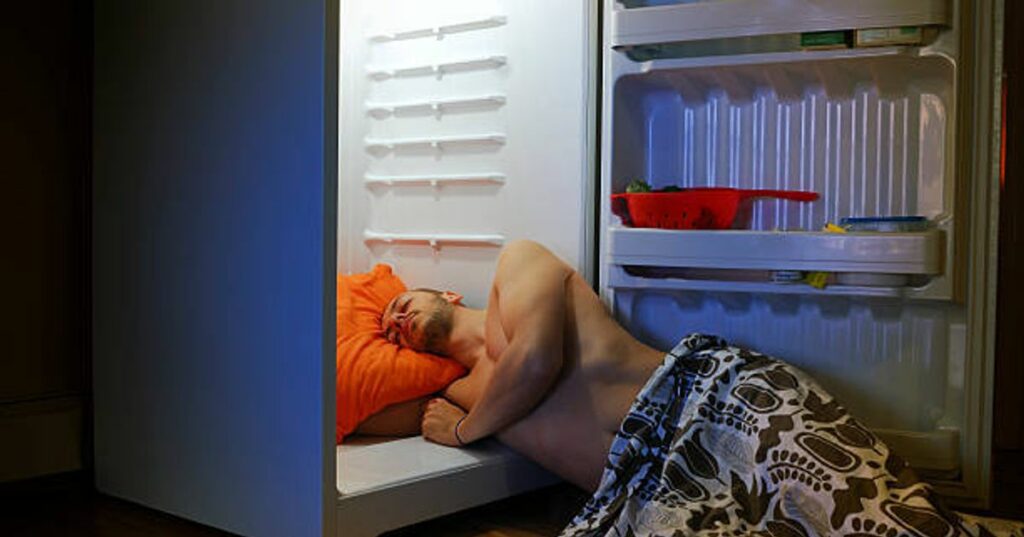Kelton Minor, Andreas Bjerre-Nielsen, Sigga Svala Jonasdottir, Sune Lehmann, Nick Obradovich/ One Earth
CLIMATE DISRUPTION – Have you had trouble falling asleep this week? Are rising temperatures affecting our sleep? This is the question posed by researchers from the University of Copenhagen and the Max Planck Institute in Berlin. Their results are presented by a study published on May 20 in the journal One Earth.
And they provide a clear answer: the heat does not help our sleep. « Warmer outside temperatures consistently erode sleep, with the amount of sleep loss gradually increasing as temperatures get warmer, » says Kelton Minorone of four authors of the study.
Concretely, the results of this research show that “this erosion occurs mainly by delaying the moment when people fall asleep and by advancing when they wake up in hot weather”. Basically, the nights are nibbled because of the temperatures.
14 minutes less per night
The study suggested that on very hot nights (over 30 degrees), sleep drops by an average of just over 14 minutes. The likelihood of getting less than seven hours of sleep also increases as temperatures rise. The researchers therefore suggest that by 2100, warmer temperatures could lead to the loss of between 50 and 58 hours of sleep per person per year.
But not everyone is affected equally by the nighttime heat. The effect of temperature on sleep loss is thus considerably greater for residents of low-income countries as well as for the elderly and women.
Kelton Minor, Andreas Bjerre-Nielsen, Sigga Svala Jonasdottir, Sune Lehmann, Nick Obradovich/ One Earth
However, to cope with the heat, our body has a cooling system. Researcher Kelton Minor explains that “every night they do something remarkable without most of us consciously knowing it: they radiate heat from our heart into the surrounding environment by dilating our blood vessels and increasing blood flow to our hands and feet”.
The human body acts like a machine here. If it is too hot, it regulates itself by opening the valves to let the heat escape to our extremities, namely the feet and hands. Only problem, for this machinery to work, the environment must be cooler than us.
A global study…which calls for others
To carry out this research, the scientists used anonymous global sleep data collected from tracking bracelets. In total, 7 million recordings made on more than 47,000 adults (from 68 countries) were collected.
However, this study has a degree of uncertainty. First of all, there are temperature fluctuations according to the variety of global climates which cause a certain margin of error.
On the other hand, people in developing countries seem to be more affected by these changes, unlike people in developed countries. One of the reasons could be the contribution of air conditioning, but its role could not be clearly identified in this study.
See also on the HuffPost: Heat wave in Asia: Passed this threshold we die of heat, here is why



